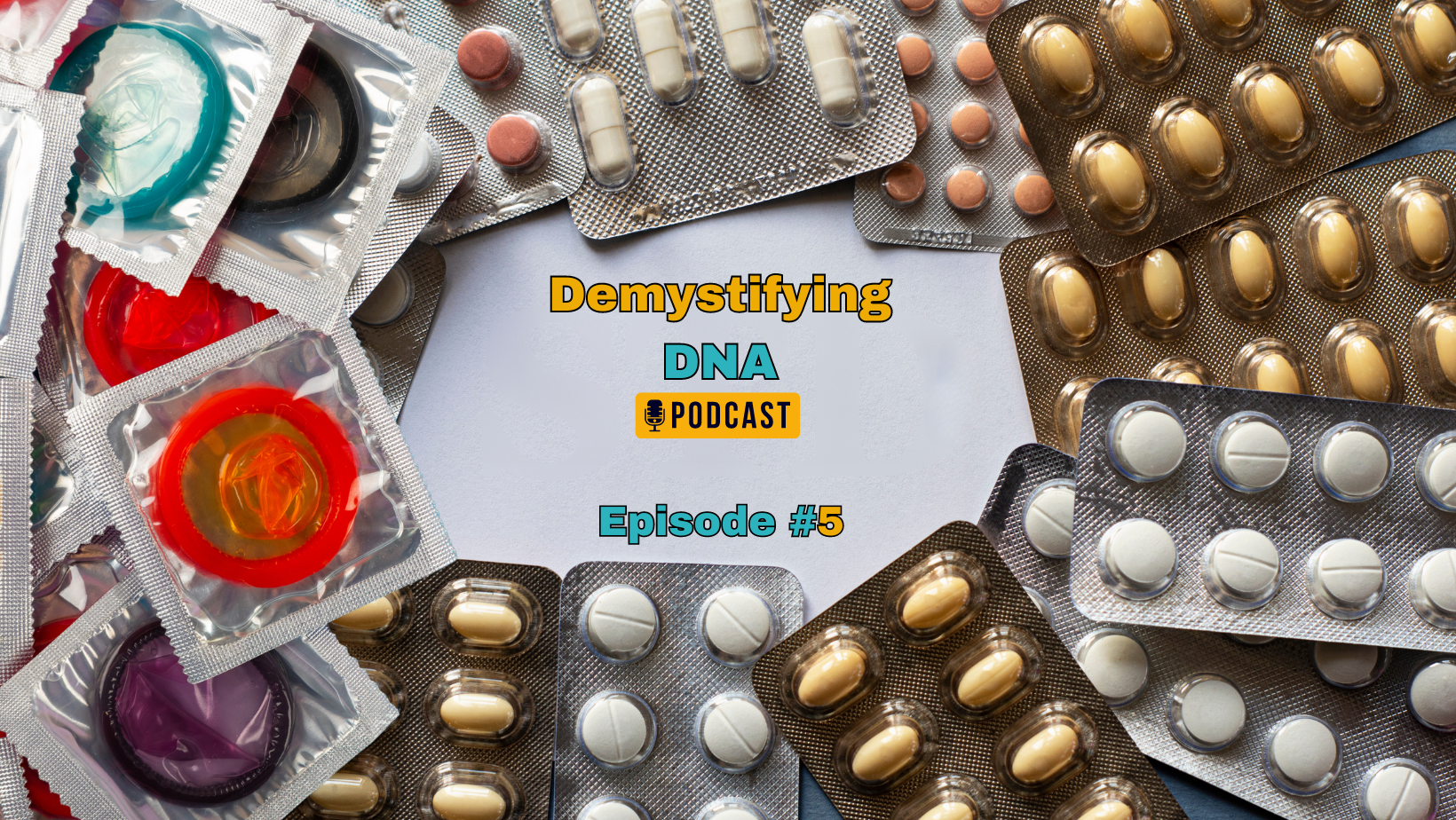
Advancing Our Talk on STIs and Health



In the latest episode of ‘Demystifying DNA,’ we bravely tackle the often overlooked and misunderstood world of sexually transmitted infections (STIs). Together with my co-host, Nick Cuevas, we delve into the alarmingly high rates of STIs among American young adults, with a particular focus on the most prevalent ones like genital herpes and HPV.
Our aim is to break down barriers and stigmas, shed light on this crucial subject, and challenge the taboos that often hinder open conversations about sexual health. To do this, we emphasize the importance of understanding the limitations of condoms in protecting against certain STIs and the significance of knowing your status.
One of the significant discussions in the episode was around STI screening, early detection, and education. In the wake of the current pandemic, these conversations have become more critical than ever, especially around viral strands like HPV. We discuss the various transmission methods and the potential risks of skin-to-skin contact.
Testing isn’t gender-specific – it’s necessary for all. Proactive measures like vaccinations and routine check-ups are highly recommended. We also shed light on the role of P23 Health in facilitating the early detection process. The integration of these practices into your relationships could be a game-changer.
The world of sexually transmitted infections (STIs) is a complex one, and often misunderstood. However, with the right education and understanding, we can demystify STIs and promote a more open and informed dialogue about sexual health. This episode aimed to do just that, providing valuable insights and discussions around the topic.
In this digital age, there are numerous ways to educate ourselves and take control of our sexual health. For instance, the availability of at-home tests to remove barriers and stigmas associated with STI testing. This, coupled with the knowledge about one’s partner’s status, can greatly contribute to the prevention and control of STIs.
We believe in the importance of proactive measures and routine check-ups. Early detection can be a life-saver and should not be taken lightly. Vaccinations, regular screenings, and maintaining open communication with your partner about sexual health are all crucial aspects of prevention and control.
In conclusion, the episode served as a reminder of the importance of maintaining our sexual health. The dialogue around STIs and their prevention needs to be more open and less stigmatized. By doing so, we can encourage more individuals to get tested, understand their status, and take necessary measures to ensure their well-being and that of their partners.
Let’s continue to Demystify DNA and promote a more informed, healthy society.

Q: What was the focus of the latest ‘Demystifying DNA’ episode?
A: The episode tackled the often misunderstood world of sexually transmitted infections (STIs), particularly focusing on their prevalence among American young adults. We specifically discussed STIs like genital herpes and HPV, aiming to break down barriers and challenge the taboos surrounding sexual health.
Q: Why is understanding the limitations of condoms important in STI prevention?
A: The episode emphasized that while condoms are effective in reducing the risk of many STIs, they have limitations, especially in protecting against STIs transmitted through skin-to-skin contact, like genital herpes and HPV. Understanding these limitations is crucial for comprehensive STI prevention.
Q: How was STI screening and early detection discussed in the episode?
A: We delved into the significance of STI screening, early detection, and education, especially in the context of the current pandemic. The discussion highlighted the importance of regular screenings and the role of education in preventing and managing STIs.
Q: What role do proactive measures like vaccinations and routine check-ups play in STI prevention?
A: The episode highlighted the necessity of proactive measures, including vaccinations and regular check-ups, for all genders. These practices are vital in the early detection and prevention of STIs and can significantly impact personal and public health.
Q: How does the episode address the complexities and misunderstandings surrounding STIs?
A: By providing valuable insights and discussions, the episode aimed to demystify STIs and promote open dialogue. It addressed common misconceptions and provided educational content to enhance understanding and awareness about sexual health.
Q: Can you elaborate on the significance of at-home tests in STI prevention and control?
A: At-home tests, as discussed in the episode, play a crucial role in removing barriers and stigmas associated with STI testing. These tests, coupled with knowledge of one’s partner’s status, contribute significantly to the prevention and control of STIs. We offer these types of tests at P23health.com, providing an accessible and private option for individuals to take proactive steps in managing their sexual health. By utilizing these tests, people can gain crucial insights into their health status, enabling better informed decisions and enhanced prevention strategies.
Q: What message did the episode convey about the importance of sexual health maintenance?
A: The episode served as a reminder of the importance of maintaining sexual health. It stressed that open, less stigmatized dialogues about STIs are essential to encourage more individuals to get tested, understand their status, and take necessary health measures.
[ad_2]
Source link










